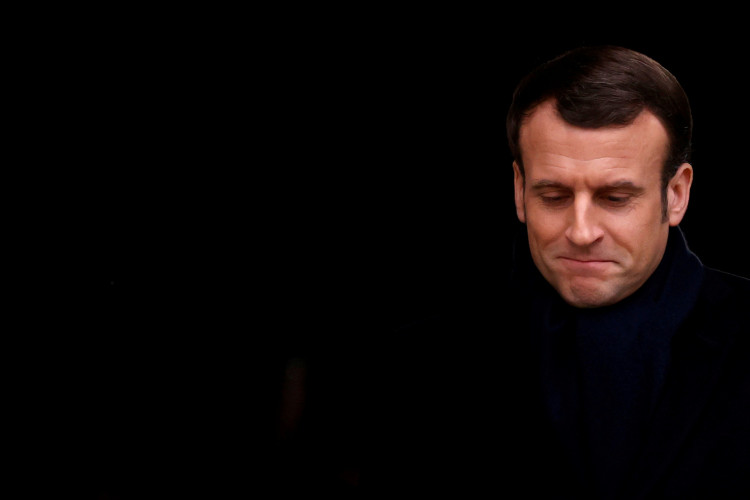The recent European Parliament elections saw President Emmanuel Macron's Renaissance party defeated by the far-right National Rally (RN), leading Macron to abruptly dissolve the National Assembly and call for early elections. Polls indicate that while the National Rally is likely to win, it will not secure an outright majority, currently negotiating with potential allies to form a governing coalition. Meanwhile, left-wing parties have announced an alliance to counter the far-right. This heightened political risk caused French markets to experience significant declines on Thursday.
Analysts suggest that Macron's unexpected decision has provided the increasingly popular far-right with a genuine chance to gain power. This move was seen as a gamble on his political future, resulting in a sharp drop in the euro and a plunge in French stocks and government bonds. The euro fell by up to 0.6%, and the CAC 40 index closed down 1.99% at 7,708.02 points, its lowest close since February 14. French banking stocks also suffered, with BNP Paribas down over 2.9%, Societe Generale down 1.6%, and Crédit Agricole down 2.5%.
Additionally, the yield spread between French and German 10-year government bonds widened to 70 basis points, the largest since 2017.
Recent polls show the National Rally winning 235 to 265 seats in the National Assembly, a significant increase from the current 88 seats but still short of the 289 needed for a majority. Macron's centrist alliance could see its seats reduced by half, from 250 to 125-155 seats. Left-wing parties may collectively control 115 to 145 seats, though they might run separately.
The National Rally is in talks with potential allies about forming a governing coalition. Media reports indicate that National Rally leaders Jordan Bardella and Marine Le Pen met with Marion Marechal of the smaller far-right Reconquete party to discuss collaboration.
Le Pen's National Rally plans to field candidates in all 577 constituencies. Some candidates will come from the disintegrating conservative Republican Party, whose leader previously called for an alliance with the National Rally but was subsequently expelled from the party.
A National Rally spokesperson said there is no complete shadow cabinet list yet, but they are considering members from within and outside the party. "We aim to form a national unity government," he said, implying a coalition that might include National Rally members, hardline conservatives, and independent candidates.
Despite being marginalized by mainstream parties for years due to its far-right policies, the National Rally has attracted growing voter support under Le Pen's leadership. The party advocates for protectionist "France First" economic policies and significant immigration reductions. They propose limiting child benefits to French citizens and revoking residency for immigrants unemployed for over a year. Despite France's high debt levels, the National Rally also suggests increasing public spending, which could raise banks' financing costs.
On Thursday, France's traditionally divided left-wing parties announced an agreement to form a "People's Front" for next month's parliamentary elections, planning to cooperate in constituency distribution to avoid losing too many seats.
The unified left-wing "People's Front" is set to confront the far-right National Rally in the elections. "We are launching our campaign now-with the goal of victory!" François Ruffin from the far-left La France Insoumise (LFI) party said on the social media platform X.
Macron's camp is struggling to address the challenges posed by both groups. Regardless of which faction secures a majority in the National Assembly, Macron will continue as president for the next three years, maintaining control over defense and foreign policy. On Thursday, he reaffirmed, "I will remain president until 2027."
However, he will lose control over the domestic agenda, including economic policy, security, immigration, and fiscal matters. Analysts point out that this could impact other policies, such as aid to Ukraine, as parliamentary support is needed to fund any assistance as part of the French budget.






